Is Pope Francis' contraception hint just a puff of smoke?
- Published
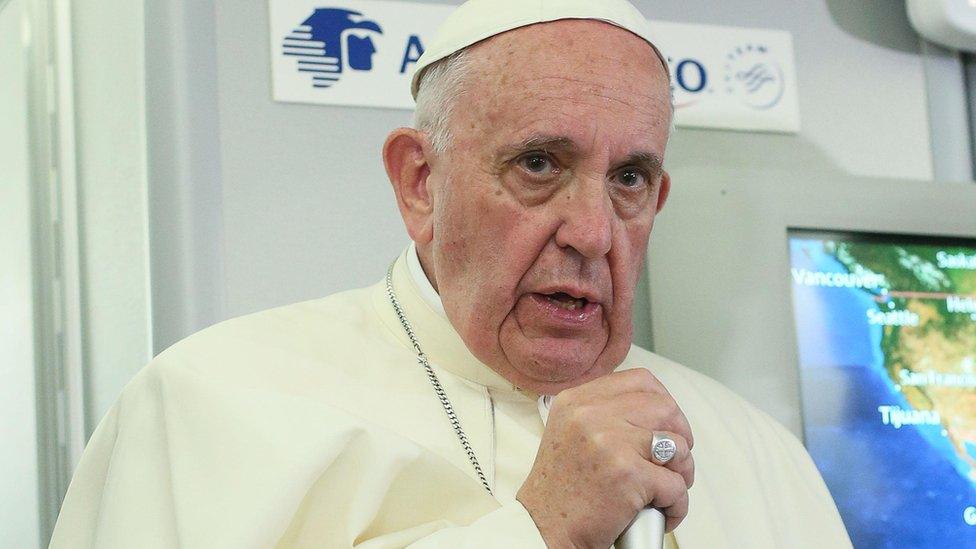
Pope Francis often briefs reporters while among the clouds
Pope Francis made headlines this week when he hinted that contraception may be acceptable in cases of Zika virus risk. But the BBC's Rome correspondent David Willey, who has written several books about the Vatican, does not believe it is a significant change of stance.
Time was when popes of the Catholic Church spoke confidently and, some believed, "infallibly" to their flock only from Rome, the centre of their worldwide religious domain.
Then came papal jet travel, and the possibility of holding informal news conferences with journalists in an Airbus at 36,000 feet, as the Pope flies away and back to Rome on his pilgrimages all over the world.
The transcontinental journeys of Popes Paul VI, John Paul II, Benedict XVI and Francis cancelled for ever the historical image of the pope as "prisoner of the Vatican".
It has been my privilege to accompany the last three popes on many of their journeys.
Most memorable were those with Pope, now Saint, John Paul, on dozens of his more than 100 foreign trips which took us over the Atlantic, Pacific and Indian oceans to countries as far away as Australia, Brazil, Japan, Kenya and the Seychelles.
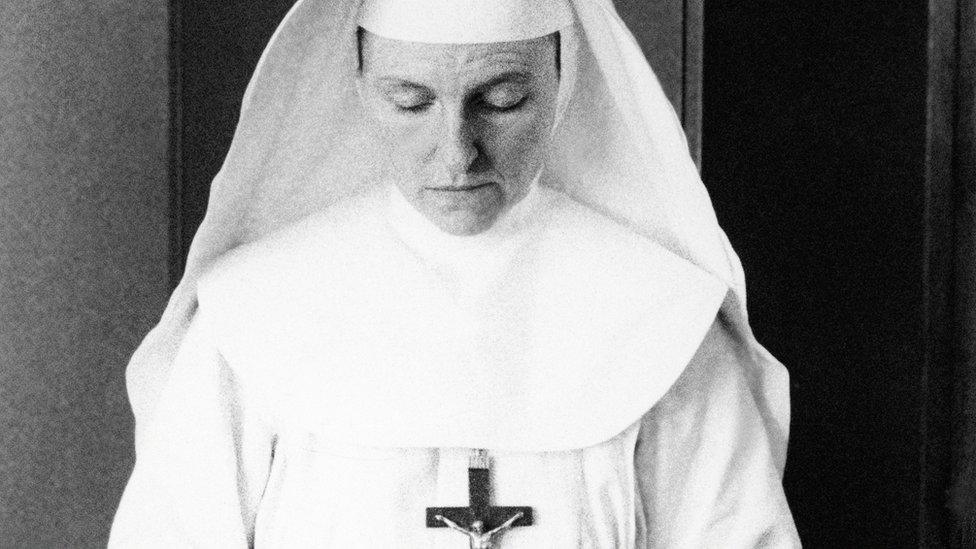
Nuns in the Congo in the early 60s were permitted to use the pill to guard against pregnancy from rape
First there came informal chats in seven different languages as the pope wandered back through the aisles in the economy class cabin, which sometimes led to chaotic scenes of cameramen scrambling over seats, and us straining our ears to overhear what he was saying and note it down or record it.
Then the news sessions gradually became more organised, with the pope's voice linked into the plane's intercom system.
Today, Pope Francis simply stands with a microphone in his hand by a bulkhead in his chartered Airbus to field questions from selected journalists.
He makes instant news when his Q&A sessions, neatly taped and edited for TV and transcribed for the written press, are released amid a flood of tweets soon after he lands.
What everyone was bursting to know in the light of the outbreak of the Zika virus in Central and South America: Will there be any change in the Catholic Church's teaching, particularly its 1968 ban on artificial contraception? It will soon be half a century since Pope Paul VI issued his controversial encyclical Humanae Vitae which in effect put a clamp on all future discussions on the subject.
Given government health service advice to women in some South American countries to postpone pregnancies because of the risk of birth defects among their future babies, should the Catholic Church relax its ban on abortion and artificial contraception?
Abortion, never, said Francis. It is a crime. But contraception, under certain emergency conditions, well, perhaps. Such as in the civil wars in the then Belgian colony of Congo during the 1960s when nuns who risked rape as war victims were authorised by Pope Paul VI to take the pill.
Was this a real chink in the curtain which came down in 1968?
The weakness of the Catholic Church's position on artificial contraception is that most Catholic women in most parts of the world have openly and steadily disobeyed papal teaching. Over 95% of sexually active Catholic women in the United States ignore the ban, according to independent opinion polls.
Flying over the United States on his return from his latest foreign trip to Mexico, Pope Francis put forward the ethical "lesser evil" argument, hinting that perhaps the use of contraceptives might be allowed to prevent the potential infection of a new-born with Zika.
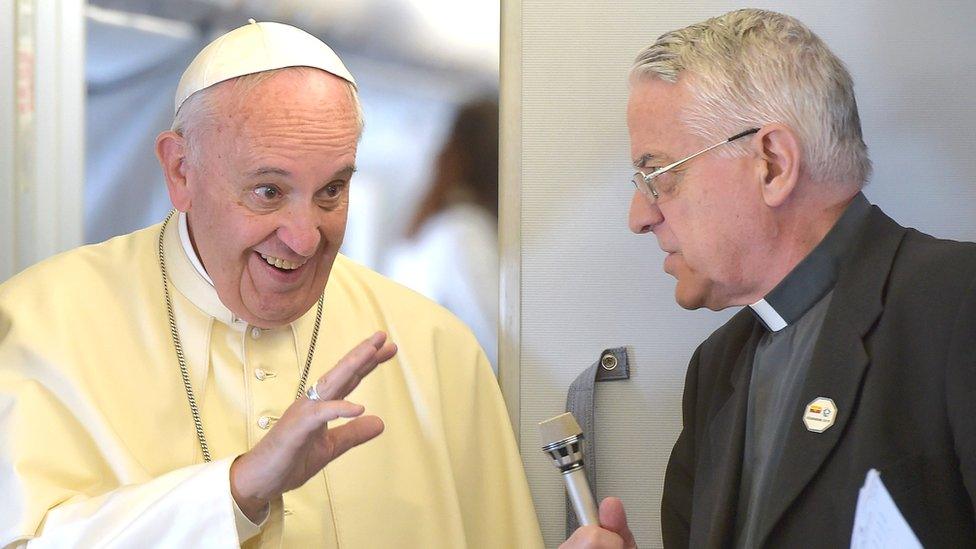
It is often left to Father Lombardi (R) to try and expound on the pope's pronouncements
"Unlike abortion," Pope Francis said, "avoiding pregnancy is not an absolute evil."
Reaction from liberal Catholics was predictably critical.
For Jon O'Brien, president of Catholics for Choice, headquartered in Washington, Francis' remarks were "profoundly disappointing for the Global North". And for the Global South his views were "devastating and could be deadly" given that if women desperate to end a pregnancy don't have access to legal and safe services, they resort to unsafe abortions.
When popes choose to speak up in the clouds in these rarefied and restricted semi-impromptu news conferences, some confusion seems bound to arise. There are few opportunities for follow-up questions and next-day world headlines reflect some puzzlement among editorial writers and journalists about what the pope really means.
And well meaning attempts by Vatican spokesman Father Lombardi to further interpret Pope Francis' words seem only to spread the fog of speculation caused by these extra-terrestrial gatherings.
Despite the headlines, despite the almost universal perception that Pope Francis has brought a whiff of fresh air through the corridors of the Vatican, I detect no undue haste to undo the teachings of his predecessors.
- Published18 February 2016
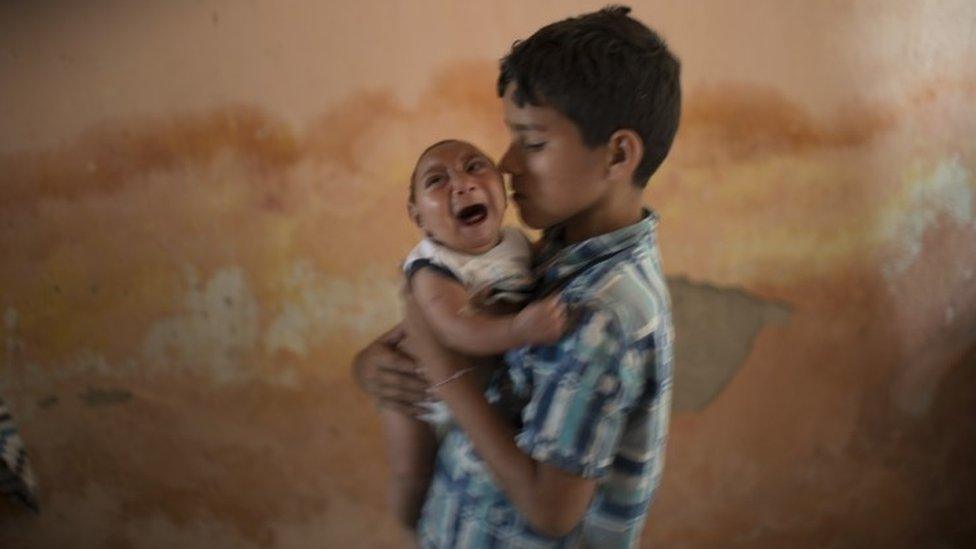
- Published18 February 2016

- Published12 February 2016
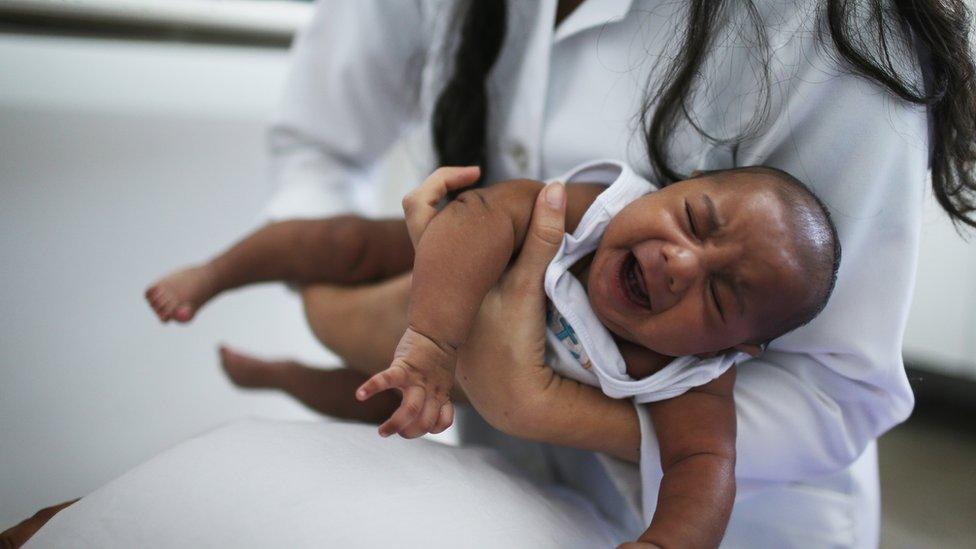
- Published16 February 2016

- Published16 February 2016
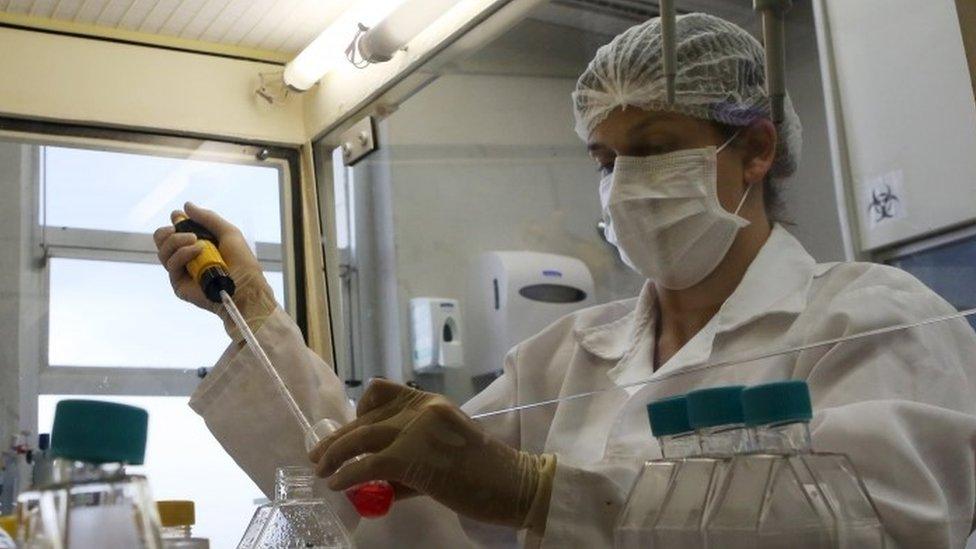
- Published31 August 2016
